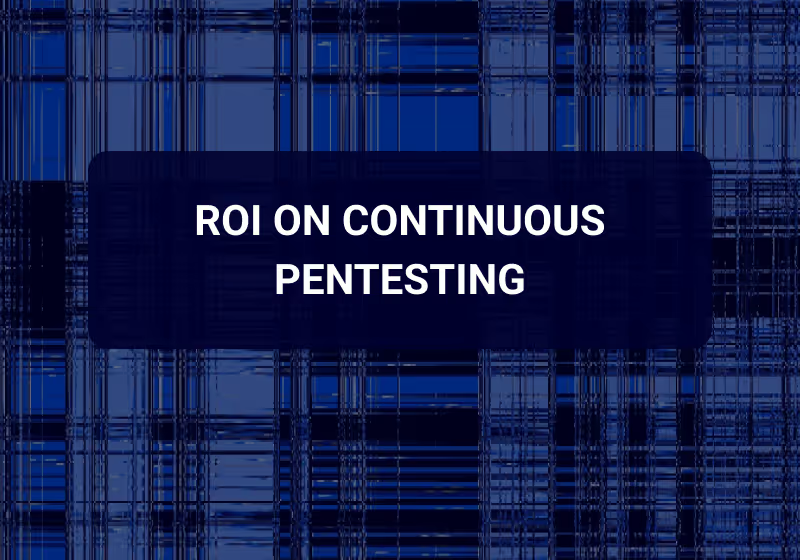Fortifying Cyber Defenses: SEC’s New Rule for Reporting Breaches
In response to the escalating cyber threats faced by businesses, policymakers have taken a bold step to fortify cybersecurity measures. As of July 26, 2023, a new regulation mandates that all companies must report cybersecurity breaches within four days of discovery. This groundbreaking change is set to transform the way organizations handle cyber incidents and bolster transparency in the face of digital vulnerabilities. In this blog post, we will explore the immediate impacts of this requirement and how it could reshape the cybersecurity landscape.
Immediate Impacts of Reporting Breaches Within 4 Days:
1. Swift Containment of Cyber Threats:
With the new reporting requirement in effect, companies are now compelled to identify and contain cyber threats rapidly. The emphasis on swift response time ensures that organizations can take immediate action to isolate affected systems, limit the breach's impact, and prevent further damage to their infrastructure and data.
2. Timely Protection of Stakeholders:
The four-day reporting window ensures that customers, employees, and partners are informed without delay in the event of a breach. This timely notification empowers stakeholders to take proactive measures to secure their personal information and assets, instilling confidence in the company's commitment to safeguarding their data.
3. Enhanced Collaboration with Law Enforcement:
Law enforcement agencies now have a greater opportunity to collaborate effectively with businesses in their efforts to combat cybercrime. By reporting breaches within four days, organizations can assist in investigations, facilitate evidence gathering, and contribute to the apprehension of cybercriminals.
4. Meeting Regulatory Compliance:
Compliance with existing regulations, such as the EU's General Data Protection Regulation (GDPR) and California's Consumer Privacy Act (CCPA), becomes more manageable with the new reporting requirement. Companies that report breaches within the mandated timeframe avoid potential fines and reputational damage associated with non-compliance.
5. Improved Incident Response Planning:
Organizations have been prompted to revamp their incident response plans to align with the new reporting requirement. This process involves streamlining response protocols, allocating resources more efficiently, and developing robust communication strategies, resulting in a stronger incident response capability.
6. Heightened Cybersecurity Awareness:
The urgency of the four-day reporting mandate fosters a heightened sense of cybersecurity awareness within organizations. Businesses are investing in proactive monitoring and detection measures, bolstering their cybersecurity infrastructure, and conducting regular training and awareness programs to keep employees vigilant against potential threats.
7. Granting Flexibility Under Certain Circumstances:
The new regulation acknowledges that in certain situations, there may be legitimate reasons for delaying the reporting of cybersecurity breaches. These allowances are primarily related to national security or public safety risks. When immediate disclosure could pose serious implications in these areas, companies may be permitted to defer their breach notification. Moreover, if the U.S. Attorney General determines that a breach disclosure would potentially jeopardize national security or public safety, they can formally notify the SEC in writing, providing a framework for companies to extend their reporting timeline. However, such extensions can only be granted under extraordinary circumstances and are subject to a maximum duration of 60 days.
8. Potential Strains for Smaller Companies:
While the new transparency requirements aim to bolster cybersecurity practices, some experts have expressed concerns about potential strains on smaller companies with limited resources. Compliance with the four-day reporting window might prove challenging, especially for organizations that lack dedicated cybersecurity teams and financial capabilities.
9. Annual Disclosures on Cybersecurity Risk Management:
In addition to reporting breaches within four days, the new rule requires comprehensive annual disclosures on cybersecurity risk management, strategy, and governance. Companies must elaborate on their processes for assessing, identifying, and managing material risks from cybersecurity threats. The focus is on processes rather than specific policies and procedures. Additionally, the disclosure highlights the board of directors' role in overseeing cybersecurity risks and management's expertise in assessing and managing these risks. These disclosures will be included in a company's annual report on Form 10-K.
10. Comparability and Accountability:
The rules extend beyond domestic entities, encompassing foreign private issuers, who are now obligated to provide comparable disclosures. This facilitates a level playing field for investors, ensuring they receive comparable information across various companies, irrespective of their origin.
Conclusion
The recent law change requiring companies to report cybersecurity breaches within four days brings increased transparency and accountability to the corporate world. By prioritizing cybersecurity risk management and empowering investors with timely information, businesses can better protect their stakeholders and build public trust. However, the implementation of the new rules may present challenges, particularly for smaller organizations with limited resources. It is essential for companies to adapt swiftly to these changes, strengthen their cybersecurity defenses, and foster a proactive cybersecurity culture to safeguard their operations and reputations in the face of escalating cyber threats. By embracing the new era of timely breach reporting, businesses can demonstrate their commitment to cybersecurity and elevate their resilience against the ever-evolving landscape of cyber risks.
To read more from the official mandate, please visit https://www.sec.gov/news/press-release/2023-139













